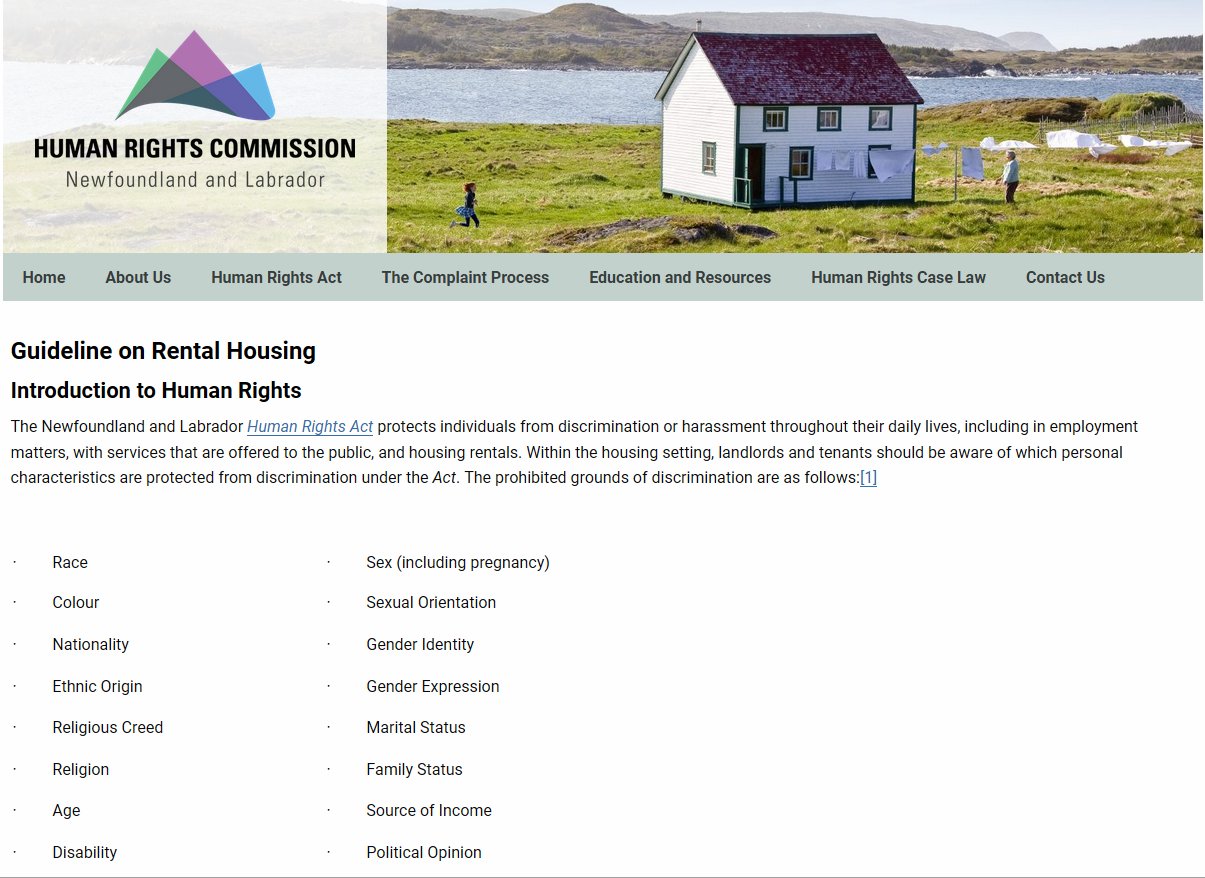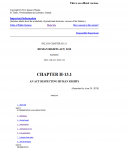The Newfoundland & Labrador Human Rights Commission has put together a Guideline on Rental Housing to help landlords and tenants understand their rights and obligations under the Human Rights Act. We highly recommend that landlords and tenants read over these guidelines by clicking the link below.

For information on the use of an animal to accommodate a disability please see our Help Topic on Pets and Service Animals.
Discrimination in Rental Ads
Some ads openly discriminate
Some housing ads contain statements that openly discriminate:
“Adult building” or “Not suitable for children”
“Must have working income” or “Must provide proof of employment”
“No Income Support”
“Seeking mature couple.”
These ads discriminate because they show the landlord’s preference of some people over others based on Human Rights Act grounds like marital or family status, age, disability and/or receipt of public assistance (including if a person’s income is from student loans, social assistance, pension or retirement funds).
Some ads discriminate by accident
Some landlords, when listing “selling points” to attract tenants, make statements that may discriminate, even if they don’t mean to. This often happens when you are trying to appeal to people you think may like the rental unit. Some examples are:
“Ideal for quiet couple”
“Suitable for single professional”
“Perfect for female student”
“Suits mature individual or couple”
“Great for working folks or students.”
These statements suggest that the landlord prefers some people over others based on the protected grounds listed above. These ads discourage good tenants from applying, because they think they won’t be treated fairly.
Describe the unit, not the tenant
Instead of naming the “ideal” person or people for the unit, list the rent, size and other information about the unit itself, the building, and nearby services that may appeal to tenants.
Think about the many ways tenants can pay rent
Residents don’t have to be working to have money to pay the rent. Research shows that people living on social assistance, pensions or retirement income are just as likely to pay their rent as people who are working.
In Newfoundland and Labrador, the Human Rights Act is enforced by the Newfoundland & Labrador Human Rights Commission. Since each Human Rights case is unique, and looked at on a case-by-case basis, if you have specific questions about your rights we advise you to contact the Newfoundland & Labrador Human Rights Commission directly. You can find more information about Newfoundland & Labrador Human Rights Commission and the Human Rights Act at https://thinkhumanrights.com/




